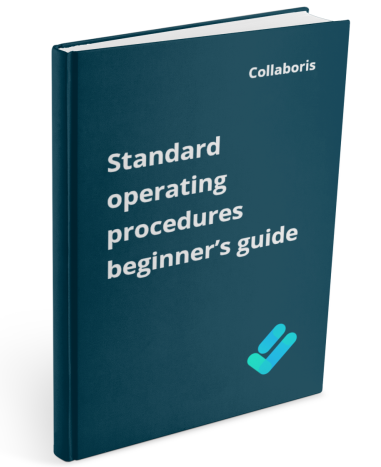Policy Approval Workflow Automated policy approval workflows offer several benefits that can significantly enhance ...
In today's fast-paced business environment, knowledge is a critical asset that can provide organizations with a competitive edge. As such, effective management of employee knowledge has become essential for companies seeking to harness the full potential of their workforce. This blog post will explore the importance of employee knowledge management and how it can significantly benefit an organization.
Understanding Employee Knowledge Management
Employee knowledge management (EKM) refers to the strategies and practices used by organizations to capture, distribute, and effectively use the knowledge possessed by their employees. It involves creating a system where knowledge, including skills, expertise, and experience, is shared and accessible to all members within the company.
Key Components of EKM
- Knowledge Capture: Documenting tacit and explicit knowledge from employees.
- Knowledge Sharing: Facilitating the exchange of information across the organization.
- Knowledge Utilization: Ensuring that the available knowledge is actively used to improve processes and decision-making.
Benefits of Employee Knowledge Management
Enhanced Decision-Making
Incorporating a robust Enterprise Knowledge Management (EKM) system into an organization's infrastructure can provide employees with unparalleled access to a vast repository of information and insights. This extensive knowledge pool serves as a critical asset in the modern business environment where data-driven strategies are paramount. Employees can leverage this repository to uncover valuable information, gain deeper understanding of intricate processes, and tap into historical data. The repository can, therefore, be instrumental for trend analysis.
The availability of such rich resources through an EKM system empowers the workforce to engage in better and more informed decision-making processes. With the ability to quickly locate relevant information, staff members can make decisions that are not just based on gut feelings or limited data, but are underpinned by comprehensive insights and factual evidence. This enhanced decision-making capability can lead to a range of positive outcomes. Improved operational efficiencies, innovative product development, heightened competitive advantage, and increased customer satisfaction are all possible.
Moreover, when an entire team or department has access to the same unified system, it ensures that everyone is on the same page. A collaborative environment where information sharing is the norm, not the exception can be created. It also mitigates the risk of redundant efforts, as the visibility of information allows employees to build on existing work rather than duplicating efforts.
Ultimately, the adoption of a well-structured EKM system is not just about having access to information; it's about optimally utilizing that information to drive organizational success and enabling employees to contribute to their fullest potential by equipping them with the necessary tools to make well-informed choices that align with the company's strategic objectives.
Tired of reminding staff to read your company policies?
DocRead makes compliance simple
Increased Efficiency and Productivity
When knowledge flows seamlessly and without barriers within an organization, it significantly curtails the amount of time that employees must dedicate to scouring for necessary information. This reduction in time spent on information hunts directly correlates to a noticeable rise in efficiency across the board. Departments become more synchronized, team collaborations are streamlined, and individual productivity levels see a substantial uplift. The cumulative effect of this increase in efficiency can lead to enhanced operational effectiveness, improved decision-making processes, and ultimately, a boost in overall productivity within the company. As knowledge is readily available and easily accessible, staff members are empowered to execute their tasks with greater accuracy and speed, fostering a work environment that values the timely sharing and utilization of information as a key driver of success.
Improved Innovation
The act of exchanging diverse ideas and pooling a wide array of expertise can significantly foster an environment that is exceedingly conducive to innovation. This happens as employees from various backgrounds and with different skill sets come together and build on each other's knowledge. By engaging in collaborative efforts, they are enabled to creatively synthesize their insights, leading to the generation of innovative solutions and groundbreaking products. Collaboration like this encourages a synergetic dynamic where individual contributions are not just added but exponentially enhanced, resulting in outcomes that might not have been possible through solitary endeavors. Through such cooperative interactions, businesses can harness the collective intelligence of their workforce, fostering a rich culture of innovation that pushes the boundaries of what is possible and leads to remarkable advancements in their industry.
Better Knowledge Retention
Enterprise Knowledge Management (EKM) systems play an indispensable role in safeguarding the intellectual capital of a corporation. They are particularly vital when dealing with the departure, whether through leaving or retiring, of employees who may have accumulated substantial amounts of company-specific knowledge and expertise throughout their tenure. The implementation of EKM systems mitigates the risk of losing these invaluable insights and experiences that can drastically impact the operational efficiency and strategic planning of a company. By effectively capturing and storing this knowledge, EKM systems ensure continuity and support the transfer of critical information to remaining and incoming staff members. This retention and dissemination of vital know-how facilitate the maintenance of a competitive edge in the industry and prevents a company from having to reinvent the wheel with each shift in its workforce.
Competitive Advantage
Organizations that excel in managing and effectively utilizing the knowledge possessed by their employees can significantly outpace the competition. This is because they are capable of being far more agile, flexible, and responsive to the dynamic shifts and fluctuations that are commonplace in today's market environments. Having a firm grasp on employee expertise allows these organizations to adapt quickly to new trends, innovate more consistently, and make informed decisions that steer them towards success. When an organization harnesses this intellectual capital efficiently, it not only stays ahead of its competitors but also establishes a strong foundation for sustainable growth and resilience in the face of potential industry disruptions.
Implementing Effective Knowledge Management Strategies
Creating a Knowledge-Sharing Culture
Fostering a culture that values knowledge sharing is key to the success of Enterprise Knowledge Management (EKM). When employees understand the benefits and are motivated to share their expertise, the entire organization stands to gain. Here's how you can encourage this kind of environment:
- Recognize and Reward Sharing: Implement recognition programs that reward individuals who actively contribute to knowledge databases or help colleagues. This could be through awards, public acknowledgment, or even tangible incentives.
- Lead by Example: Leaders should actively participate in knowledge sharing. When employees see their superiors contributing, they're more likely to follow suit.
- Create Collaborative Spaces: Design workspaces that encourage interaction and collaboration. Open office layouts, communal areas, and online forums can facilitate the exchange of ideas.
- Provide the Right Tools: Equip your team with user-friendly platforms for sharing information. Whether it's an internal wiki, a cloud-based document system, or a specialized EKM software, make sure it's accessible and easy to use.
- Offer Training: Educate your staff on the importance of knowledge sharing and provide training on how to effectively use EKM tools.
- Remove Barriers: Identify and eliminate any obstacles that might prevent knowledge sharing. This could include overly strict hierarchies, lack of time, or fear of criticism.
- Encourage Networking: Promote networking within the organization. Encourage your team to build relationships across departments which can lead to organic knowledge sharing.
By taking these steps, you create an atmosphere where knowledge isn't just an asset—it's a shared resource that everyone contributes to and benefits from.
Leveraging Technology
Utilizing knowledge management software and tools can facilitate the capture, storage, and dissemination of knowledge.
Knowledge management software and tools serve as a cornerstone for organizations aiming to harness the power of information. They provide a structured approach to managing knowledge assets. Here's how they can transform your organization:
- Centralize Information: By creating a single repository, these tools ensure that data is easily accessible to all team members.
- Enhance Collaboration: Team members can share insights and expertise, fostering a collaborative environment.
- Improve Decision Making: With relevant information at their fingertips, employees can make informed decisions quickly.
- Preserve Knowledge: These systems help in retaining critical information, even when employees leave the organization.
To fully leverage these benefits, it's essential to choose the right tool that aligns with your organization's needs. Look for features like easy integration, user-friendly interfaces, and robust security measures. Remember, the goal is to streamline knowledge flow and empower your workforce with the right information at the right time.
Are your policies read on time and by the right people?
DocRead makes compliance simple
Continuous Learning and Development
Investing in training and development ensures that employees' knowledge remains current and relevant. Training and development is not just about keeping employee knowledge fresh. It's also about fostering a culture of continuous improvement. When employees grow, the whole organization grows with them.
Here are some key benefits:
- Boosts Morale: Employees feel valued when you invest in their growth.
- Increases Productivity: Skilled employees can do their jobs more efficiently.
- Encourages Loyalty: People are likely to stay where they see career growth.
- Stays Competitive: A skilled workforce keeps you ahead of industry trends.
It's clear that the advantages of investing in your team's skills are vast. Not only does it prepare your company for future challenges, but it also builds a strong foundation for success. Remember, an investment in knowledge pays the best interest.
Measuring Impact
Regularly assessing the impact of EKM initiatives can help in fine-tuning strategies and demonstrating value to stakeholders.
Understanding the effectiveness of your EKM (Enterprise Knowledge Management) initiatives is crucial. It allows you to adjust your strategies to better meet your goals. Regular assessments can also show stakeholders the benefits of their investments.
Here's how you can keep track of your EKM efforts:
- Set Clear Objectives: Know what you want to achieve with your EKM strategy.
- Use Metrics: Choose key performance indicators (KPIs) that reflect your objectives.
- Gather Feedback: Listen to what users and stakeholders have to say.
- Analyze Data: Look at usage patterns, engagement levels, and other relevant data.
- Make Adjustments: Use insights to refine your approach and improve outcomes.
- Report Results: Share successes and lessons learned with all stakeholders.
By staying on top of these actions, you ensure your EKM strategy remains dynamic and effective.
Conclusion
The management of employee knowledge is not just about preserving information; it's about empowering your workforce to perform at their best. By implementing effective knowledge management practices, organizations can ensure that they remain innovative, efficient, and competitive in an ever-changing business landscape.
Incorporating EKM into your organizational strategy is not just beneficial—it's essential for sustained success in the modern economy.
Get your free Standard Operating Procedures guide
Creating Standard Operating Procedures for your organisation doesn't have to be complicated. This guide will introduce you to the whole lifecycle from creation to training and distribution.
You may also like:
January 17, 2025
January 7, 2025
Creating policy review reminders in Office 365 You might want to set up a ...
December 19, 2024
Podcast: Implementing effective healthcare procedures Implementing effective healthcare procedures is an ongoing process. It ...
December 19, 2024
Podcast: 10 Powerful Strategies for Employee ComplianceOrganizations face challenges in ensuring employee compliance with ...
December 8, 2024
AI Warns About Itself: How I Asked AI to Create a Podcast on the ...
November 4, 2024
Benefits of writing SOP's In any organization, standard operating procedures (SOPs) are critical to ...


